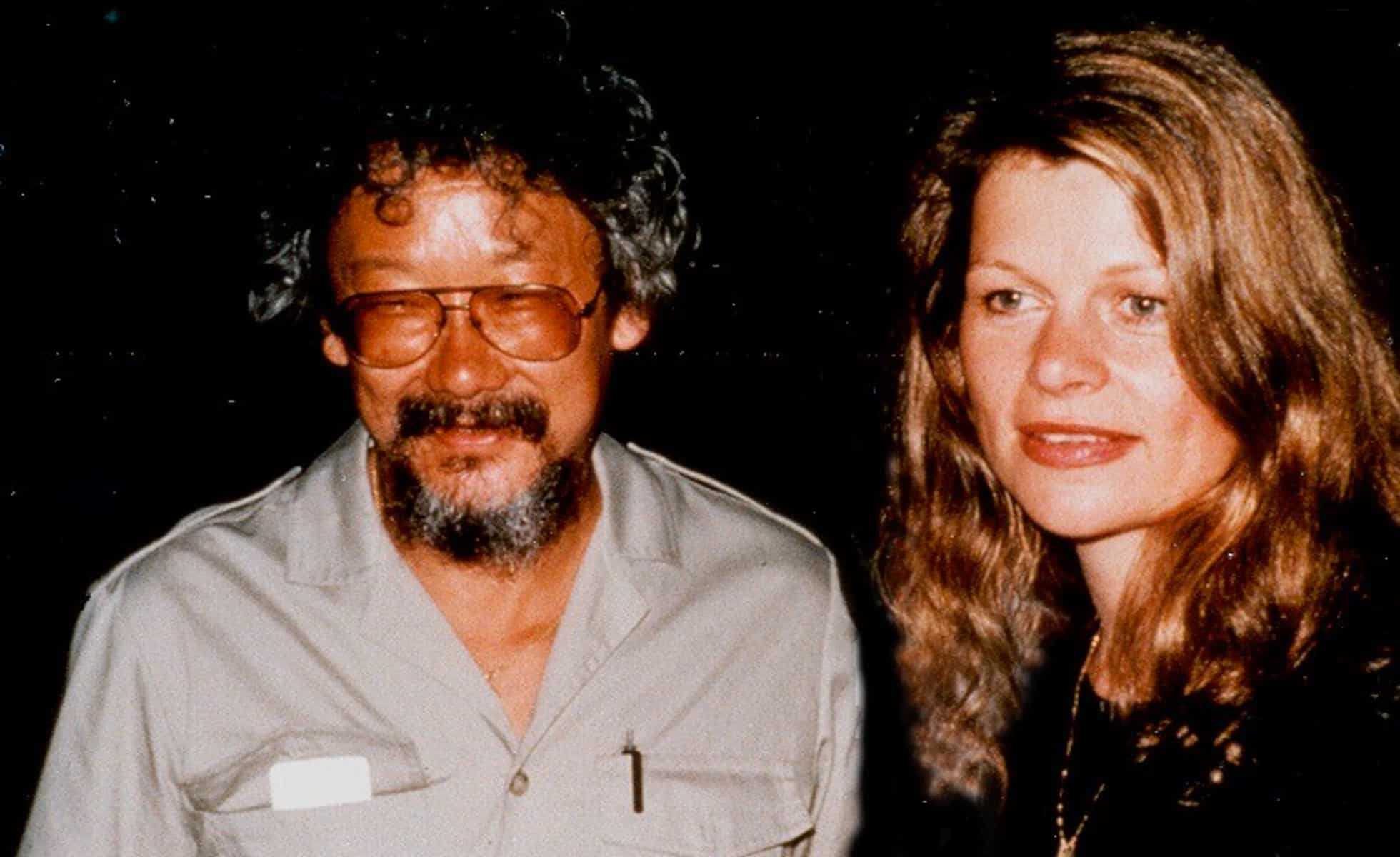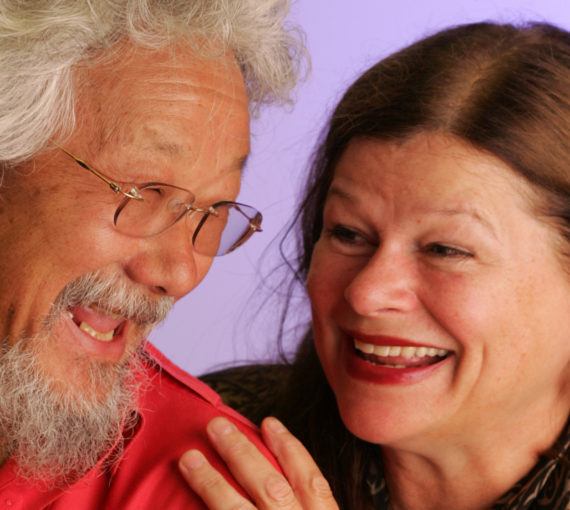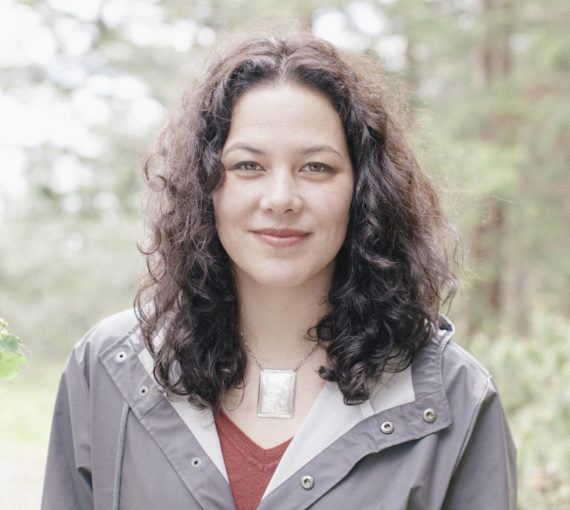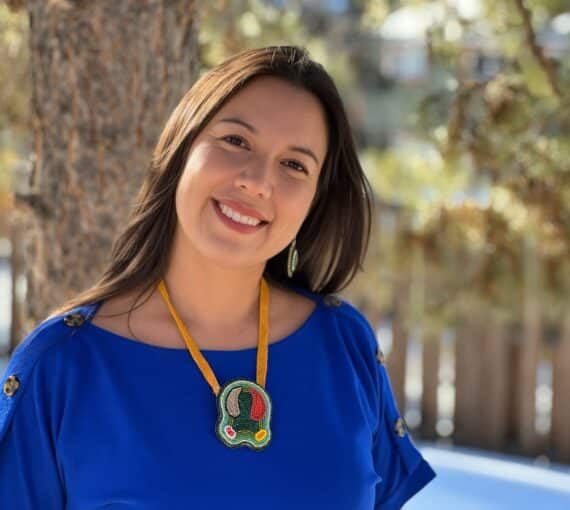
Our co-founder, Tara Cullis, pictured here with David Suzuki circa 1992, knows the answer to our world’s greatest challenges is love — for each other and the planet.
A conversation with Tara Cullis, David Suzuki Foundation co-founder, as we celebrate the women — past and present — who shape the David Suzuki Foundation, in honour of International Women’s Day 2024.
A sacred balance between two “sides” of the brain
Many have said the key to life is balance. Few have lived a life that has expressed balance — between “left” and “right” brain, career and family, rational thought and creativity — the way Tara Cullis has.
But it wasn’t always this way.
“I was brought up in a more old-fashioned way. The division between the genders was quite profound when I was a kid. My dad was a physicist, my mom studied literature — so my brother and I did the same. That’s the way it was.”
While we often speak of the binary between women and men, Tara says speaking in terms of “masculine” and “feminine” brain hemispheres is a more helpful way of distinguishing between ways of thinking.
“One thing that helps me is the metaphor of the ‘left’ and ‘right’ sides of the brain. One side is individualistic, dominant, linear. The other focuses on community, interdependence, connection to nature, emotion.
“Due to the Industrial Revolution and the success of technology, society gradually decided the ‘left brain’ is the superior mode of thought. But this imbalance has allowed progress at the cost of the destruction of the environment. So it’s vitally important for ‘right brain’ people — poets, women, Indigenous Peoples — to correct that imbalance. It wasn’t on purpose — we didn’t know that nature wasn’t infinite — but we need more of that type of thinking. It’s vitally important to get that balance back.”
How to do that?
“Well since women and minorities have been largely excluded from leadership positions, the current move to change that should improve things. I suspect it will.”
Buck the patriarchy
Earth has been around for about 4.5 billion years. Human beings have been around for 150,000. And in just the past few hundred years, since industrialization, we have wreaked havoc on the planet in unprecedented ways. We now live in the midst of a climate crisis, mass species extinction and growing inequality. The dominant systems of colonialism, growth-at-all costs capitalism, white supremacy and patriarchy have created this disastrous path — and the lack of connection with the natural world, and each other, that has helped pave it.
“The more linear, scientific, monetized approach got us really far— and was effective on many fronts — but has come at too great a cost for the planet. We need to rebalance our outlook.”
Tara Cullis
Tara sees signs of progress within the Foundation she helped create. Her eldest daughter, Severn Cullis-Suzuki, became the first female executive director of the David Suzuki Foundation in 2021. Jocelyn Joe-Strack was just named the first Indigenous chair of its board of directors (replacing the first female chair, Margot Young). On the Foundation’s management team, nine of 12 members are female.
“One reason why women ‘get it’: we’re part of nature — we’re animals. We know it. We menstruate, our hormones are in sync with the moon and tides.”
Calling all housekeepers
Another reason they “get it” is, traditionally, women have disproportionately been the housekeepers. Tara suggests this perspective is undervalued — and is perhaps exactly what’s needed to help solve the massive crises we face.
“Any housekeeper, of any gender, knows you can’t spill oil in the front hall and not clean it up. It gets tracked all over the house. We know you can’t sweep anything under the rug. In the end, you’ve got to clean it up.”
“We mothers have done too good a job taking care of our boys. Many men of wealth and power have never cleaned up after themselves. They don’t even understand the concept. Many of them believe ignoring a mess erases it. It’s worked for them!”
Tara Cullis
“That’s what’s missing in the Adam Smith paradigm. The economy is supposed to be about self-interest — that’s ludicrous. If everyone was self-interested, we wouldn’t have homes, families, communities. The housekeepers of the world understand how to protect nature. We need those types of thinkers to turn this around. Environmental work is global housekeeping.”
At this perilous stage in humankind’s trajectory on planet Earth, what could be more important than being good housekeepers?
A story of love — for each other, and the planet
Tara met David Suzuki in 1971. They co-founded the David Suzuki Foundation nearly 20 years later in 1990. They’ve been married now for more than five decades. Their story has been one of love for each other, and for the planet that sustains all life.
“It was exciting. It was a lot of fun. We had a lot of energy and still do. I was healthy and had to do something with my mind and energy — and David was perfect. I remember him arguing toe to toe with CEOs, and their wives would say, ‘You tell him David, he doesn’t get it!’
“When I married David — a Japanese Canadian, a member of a minority — I wouldn’t have had much of an understanding of that if I hadn’t been female. I know what it’s like to be disregarded just for being who you are. One of the advantages of being female is that you know what it’s like not to be number one.”
Tara turned 75 last month. David turns 88 this month. While David lived an incredible half-century career as host of The Nature of Things, it was largely Tara’s efforts that launched and nurtured the David Suzuki Foundation in its early years.
“David was incredible and he shared the passion, but he was often occupied. I had to find people to roll up their sleeves. At the beginning of the David Suzuki Foundation, it was all volunteers — and it was amazing. The Foundation was built on the passion and hard work and generosity of a lot of different people.
“I often think, in another life, I would have been a scientist. I would have done very different things. But it’s turned out well — and it’s important to learn you can’t do things by yourself. You have to find out who shares your passions, who’s there to roll up their sleeves with you.”
With her quintessential grace and humility, Tara reflects on David, the icon, and the many volunteers who helped bring the David Suzuki Foundation to life. But without her, none of it would have been possible. So perhaps she — and her approach to leadership, relationships, communication and love — has been the most important ingredient of all.
“It’s really only recently, just this last little while, that I’ve received compliments like that.”
Happy International Women’s Day to everyone — especially all the amazing women who continue to make this world better, and everyone who loves and supports them for all that they are. Here’s to a world where more women are in charge — and more “feminine” ways of thinking and acting abound.


